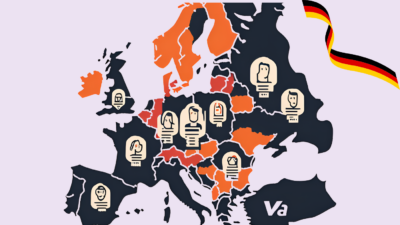Singapore is renowned for its robust economy, excellent infrastructure, and tax-friendly environment, making it an attractive destination for digital nomads. Understanding Singapore taxes is essential to navigating the financial aspects of living and working remotely in this dynamic city-state. In this guide, we’ll break down the key aspects of Singapore’s tax system and provide actionable tips for digital nomads.
Overview of Singapore’s Tax System
Singapore’s tax system is straightforward and business-friendly. For individuals, taxes are based on residency status and income source.
Key Features
- No capital gains tax: Income from investments is not taxed.
- Territorial tax system: Only income earned in Singapore or remitted to Singapore is taxable.
- Progressive tax rates: Tax rates increase with income, encouraging a fair system.
Tax Rates for Individuals
Singapore uses a progressive tax system:
| Income Bracket (SGD) | Tax Rate (%) |
|---|---|
| 0 – 20,000 | 0% |
| 20,001 – 30,000 | 2% |
| 30,001 – 40,000 | 3.5% |
| 40,001 – 80,000 | 7% |
| 80,001 – 120,000 | 11.5% |
| 120,001 – 160,000 | 15% |
| 160,001 – 200,000 | 18% |
| 200,001+ | 22% |
Who Qualifies as a Tax Resident in Singapore?
Residency status significantly affects your tax obligations in Singapore.
Criteria for Tax Residency
You are considered a tax resident if:
- You stay or work in Singapore for at least 183 days in a calendar year.
- You are a permanent resident or Singaporean citizen.
Non-residents are taxed at a flat rate of 15% or the progressive rate, whichever is higher, on income earned in Singapore.
Implications for Digital Nomads
If you work remotely for non-Singaporean clients and do not remit income to Singapore, your earnings may not be taxable. However, if you exceed the 183-day threshold, you might be classified as a tax resident.
Benefits of Singapore’s Tax System for Digital Nomads
1. Low Tax Rates
Singapore’s income tax rates are among the lowest in the world, providing significant savings for high earners.
2. No Double Taxation
Singapore has signed Avoidance of Double Taxation Agreements (DTAs) with over 80 countries. This ensures digital nomads avoid being taxed twice on the same income.
3. No Capital Gains Tax
Earnings from investments or trading are not subject to taxation, making Singapore a hub for entrepreneurs and investors.
4. Ease of Filing
Singapore’s tax filing system is digital and user-friendly, with clear deadlines and minimal bureaucracy.
Practical Tax Tips for Digital Nomads
Step 1: Understand Taxable Income
Income earned in Singapore or remitted to Singapore is taxable. To optimize your finances:
- Keep foreign income offshore.
- Use foreign bank accounts for non-Singaporean clients.
Step 2: Leverage Tax Treaties
If your home country has a DTA with Singapore, explore how you can minimize tax liabilities.
Step 3: File Taxes on Time
- Tax year: January 1 to December 31.
- Filing deadline: April 15 annually.
Step 4: Seek Professional Advice
A tax advisor can help navigate complexities like residency rules and DTAs to ensure compliance and savings.
Real-World Example: A Digital Nomad’s Tax Strategy
Scenario
Liam, a digital marketer earning SGD 150,000 annually, works remotely for clients in the UK and Australia. He resides in Singapore for eight months a year.
Tax Strategy
- Keeps his income in a UK bank account to avoid remitting funds to Singapore.
- Utilizes Singapore’s DTA with the UK to prevent double taxation.
- Files as a tax resident for progressive tax benefits.
Outcome
Liam pays significantly lower taxes compared to other high-tax countries, retaining more of his earnings.
Common Questions About Singapore Taxes
1. Is remote income taxed in Singapore?
Remote income from non-Singaporean sources is not taxed unless remitted to Singapore.
2. What if I’m a non-resident?
Non-residents are taxed at 15% or the progressive rate, whichever is higher.
3. Do I need to file taxes as a digital nomad?
If you’re classified as a tax resident or earn Singapore-sourced income, yes.
Additional Resources
- Inland Revenue Authority of Singapore (IRAS)
- Double Taxation Agreements List
- Guide to Filing Taxes in Singapore
Conclusion
Singapore’s tax-friendly policies, combined with its world-class infrastructure and cosmopolitan lifestyle, make it an ideal destination for digital nomads. By understanding residency rules, leveraging tax treaties, and managing income effectively, you can optimize your taxes while enjoying everything Singapore has to offer.
Disclaimer: This article is for informational purposes only and does not constitute legal, tax, or financial advice. Consult a qualified tax advisor for guidance tailored to your situation.





